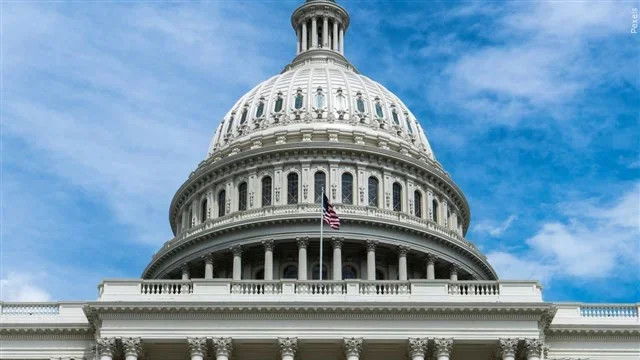Wyden co-sponsors bill to ease food insecurity among college students, expand SNAP eligibility, outreach

WASHINGTON (KTVZ) -- Sen. Ron Wyden, D-Ore., said Monday he is co-sponsoring a bill that would address food insecurity among college students, ensuring they can focus on their education without fear of sacrificing meals to pay for school.
“College alone is a big enough challenge for students,” Wyden said. “Students shouldn’t have to worry about whether they can afford a meal. We need to ensure that students seeking opportunities are set up for success, and that includes giving them access to nutritious meals.”
College students often face severe restrictions on their ability to access and use Supplemental Nutrition Assistance Program (SNAP) benefits unless they meet certain conditions, such as working more than 20 hours per week or having young children. This barrier ignores older students who are juggling school, work, and family responsibilities. The Government Accountability Office (GAO) report found almost 60 percent of potentially eligible students were not enrolled in SNAP, highlighting how current eligibility requirements are leaving food-insecure students behind.
The Student Food Security Act would support those students by expanding eligibility for SNAP, allowing students to use SNAP benefits at on-campus dining facilities, increasing outreach by federal and state agencies to food-insecure students, and establishing an annual grant program to aid colleges and universities in better identifying and serving students with food and housing needs.
Specifically, the Student Food Security Act would:
- Increase the SNAP eligibility of low-income college students by expanding eligibility to students who qualify for work study, have a $0 Student Aid Index, meet the financial eligibility criteria for a maximum Pell Grant (even if they have not filed the FAFSA), or are an independent student whose household is otherwise eligible. This would make permanent an expansion of SNAP eligibility that was first enacted in response to the COVID-19 pandemic.
- Increase outreach to eligible students by directing the U.S. Department of Education to work with the U.S. Department of Agriculture, the Secretary of Housing and Urban Development, and other relevant agencies to notify students they may be eligible for benefits when they file their application for federal student aid.
- Require the Department of Education to collect data on food and housing insecurity.
- Creates a SNAP student hunger demonstration program to allow students to use their SNAP benefits at on-campus dining facilities at up to ten institutions.
- Establish a $1 billion per year grant program to help institutions of higher education identify and meet the basic needs of their students, such as food, housing, childcare, and more. Grants can be used for research, planning, and implementation of strategies which educate students on federal, state, local, and tribal assistance programs. Institutions with increased numbers of Pell Grant recipients will be prioritized. At least 25 percent of grants must go to community colleges, and at least 25 percent must go to Historically Black Colleges and Universities (HBCUs), Tribal Colleges and Universities, and other Minority-Serving Institutions.
Representatives Jahana Hayes (D-Conn.) and Norma Torres (D-Calif), and Senators Elizabeth Warren (D-Mass.), Chris Murphy (D-Conn.), Alex Padilla (D-Calif.), Bernie Sanders (I-Vt.), and John Fetterman (D-Pa.) introduced the Student Food Security Act of 2024.
In addition to Wyden, Senators Richard Blumenthal (D-Conn.), Dick Durbin (D-Ill.), John Fetterman (D-Pa.), Tina Smith (D-Minn.), Chris Van Hollen (D-Md.), and Peter Welch (D-Vt.) are co-sponsors of the bill.
The Student Food Security Act also has been co-sponsored in the House by Representatives Alma Adams, PhD. (D-N.C.), Nanette Barragán (D-Calif.), Lisa Blunt Rochester (D-Del.), Cori Bush (D-Mo.), Troy Carter (D-La.), Jasmine Crockett (D-Texas), Jonathan Jackson (D-Ill.), Henry C. “Hank” Johnson, Jr. (D-Ga.), Barbara Lee (D-Calif.), Kevin Mullin (D-Calif.), Eleanor Holmes Norton (D-D.C.), Chellie Pingree (D-Maine), Andrea Salinas (D-Ore.), Mary Gay Scanlon (D-Pa.), Melanie Stansbury (D-N.M.), Eric Swalwell (D-Calif.), Shri Thanedar (D-Mich.), Bennie G. Thompson (D-Miss.), Rashida Tlaib (D-Mich.), Jill Tokuda (D-Hawai’i), David Trone (D-Md.), Nydia M. Velázquez (D-N.Y.).
The Student Food Security Act has been endorsed by Connecticut Foodshare and End Hunger CT!, The Hope Center at Temple University, Alliance to End Hunger, National Education Association (NEA), American Federation of Teachers, Center for Science in the Public Interest, Feeding America, Bread for the World, National Center on Housing and Child Welfare, Hunger Free America, the Education Trust, Institute for Higher Education Policy, MAZON: A Jewish Response to Hunger, Food Research and Action Center (FRAC), Institute for College Access & Success (TICAS), New America Higher Education Program, SchoolHouse Connection, Swipe Out Hunger, New Mexico Basic Needs Consortium, Nourish Colorado, Nourish California, Partners for a Hunger-Free Oregon, Greater Boston Food Bank, GRACE/End Child Poverty California, Oregon Student Association, MA Hunger Free Campus Coalition, Hildreth Institute, One Family, The Open Door, uAspire, Second Harvest Food Bank of Orange County, Hunger Free Vermont, Food for People, NJPIRG Students, William E. Morris Institute for Justice, California Association of Food Banks, Massachusetts Association of Community Colleges, Project Bread, Massachusetts Law Reform Institute, Basic Needs Oregon, CLASP, Food Bank of Western Massachusetts, Los Angeles Regional Food Bank, MASSPIRG Students, River City Food Bank, Sacramento Food Bank & Family Services, San Diego Hunger Coalition, American Council on Education (ACE), Vermont Foodbank, Young Invincibles, National College Attainment Network, California Competes, Alchemist Community Development Corporation, The Center for Higher Education Policy and Practice at SNHU, Hispanic Association of Colleges and Universities, National Women’s Law Center, National Association of Independent Colleges and Universities, California Community Colleges, Linn-Benton Community College, Portland Community College, University of California, University of California Agriculture and Natural Resources, UC Irvine, UC Santa Cruz, and all 15 Massachusetts community colleges (Bristol, Bunker Hill, Cape Cod, Holyoke, MassBay, Massasoit, Middlesex, North Shore, Northern Essex, Quinsigamond, Roxbury, Springfield Technical, Berkshire, Greenfield, and Mt. Wachusett).
A one-page summary of the bill is here.
The full text of the bill is here.